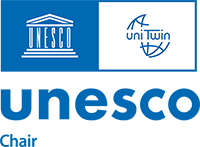- A
- A
- A
- ABC
- ABC
- ABC
- А
- А
- А
- А
- А
-
-
Education
-
Science
11 Myasnitskaya St., Moscow
+7 (495) 621-28-73
issek@hse.ru
Futures Studies
Futures studies is an interdisciplinary field of knowledge which involves analysing and developing viable models of the future based on scientific forecasting and foresight.
Unlike traditional futurology, futures studies are focused not only on building visions of the future, but also on suggesting practical steps to implement them.
Foresight, the most relevant futures studies method, relies on using expert knowledge, and promotes informal relations between participants in the course of their interaction. Setting up expert platforms where scientists, businesspeople, university professors, officials, and experts in relevant fields can discuss common problems in a systemic way is seen as one of the main advantages of foresight methodology.
Various methods are applied in foresight studies, depending on their goals and objectives. Techniques such as expert panels, Delphi surveys (two-stage expert polls), SWOT analysis, brainstorming, scenario building, technology roadmaps, relevance trees, mutual influence analysis, big data mining and many others make it possible to build alternative development scenarios that account not only for possible or desirable events, but also for so-called ‘wild cards’—unlikely occurrences with the potential to significantly affect the future of the studied field.
Analytical studies conducted by the RAND Corporation (US) in the 1950s are generally seen as the first attempt at scientific forecasting of promising areas in science and technology development. A decade later, futures studies educational programmes appeared in the West.
Russia embarked on comprehensive long-term science and technology development forecasting in the 1990s. The first International Research and Educational Foresight Centre was established at HSE University in 2006.
Futures studies educational initiatives are focused on improving futures literacy, promoting creative, strategic, and critical thinking, teaching the skills required to anticipate potential threats, and developing proactive measures to prevent or delay negative trends.
- About
- About
- Key Figures & Facts
- Sustainability at HSE University
- Faculties & Departments
- International Partnerships
- Faculty & Staff
- HSE Buildings
- Public Enquiries
- Studies
- Admissions
- Programme Catalogue
- Undergraduate
- Graduate
- Exchange Programmes
- Summer Schools
- Semester in Moscow
- Business Internship
-
https://elearning.hse.ru/en/mooc/
Massive Open Online Courses
-
https://www.hse.ru/en/visual/
HSE Site for the Visually Impaired
-
http://5top100.com/
Russian Academic Excellence Project 5-100
- © HSE University 1993–2025 Contacts Copyright Privacy Policy Site Map
- Edit

